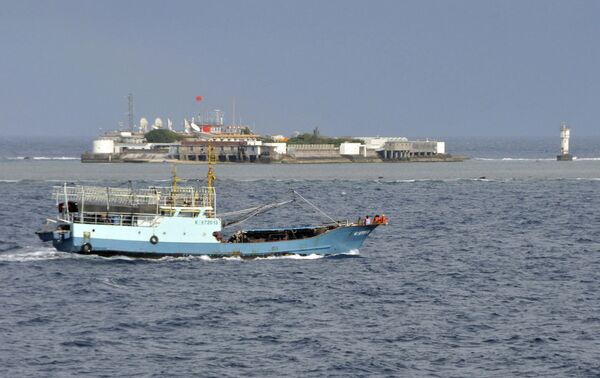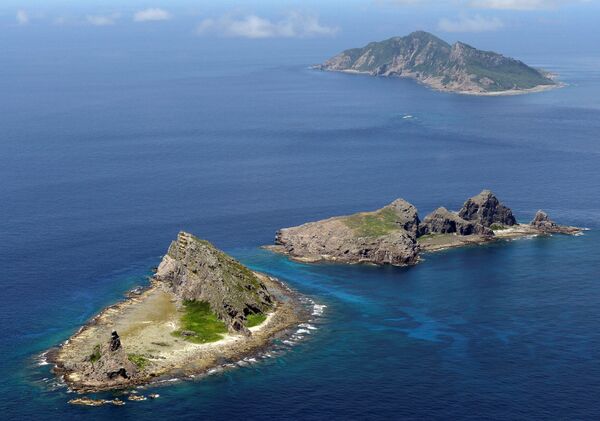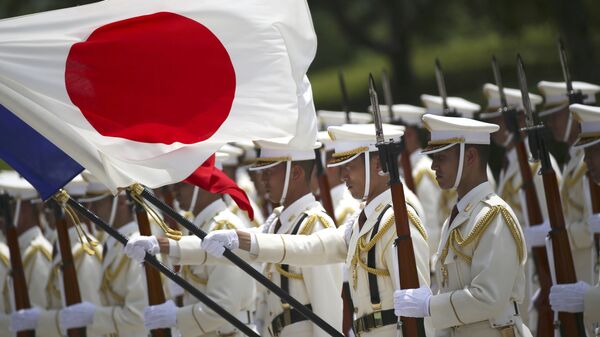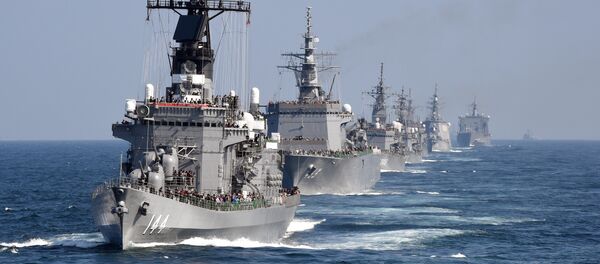The 484-page report refers to North Korea's missile program as the key challenge to Japan's security.
"Even assuming that North Korea exaggerates claiming to achieve range ability for ballistic missiles and to obtain small nuclear charge for a warhead capable of hitting the United States, it is still possible that military provocations in the region will increase, so our country is concerned over the situation," the white paper said.
The following day, South Korea reported that Pyongyang had fired two medium-range ballistic missiles, one of which was fired into the Sea of Japan.
Japan's defense paper received a fierce reaction in Beijing, after it also criticized China's activities in the South China Sea and alleged that Beijing is unwilling to compromise with other countries in the region.

Tokyo thinks that Beijing's stance could result in "unintended consequences."
China expressed "strong dissatisfaction with and resolute opposition against" the report, which it said "hypes up the East and South China Sea issues."
Last month China rejected the verdict of The Hague's Permanent Court of Arbitration, which ruled against China and in favor of the Philippines in the South China Sea dispute. Rather than international arbitration, Beijing has called for the dispute to be resolved through bilateral negotiations between the parties involved.
The South China Sea is a highly-contested region through which nearly $5 trillion in international trade passes annually. In addition to China and the Philippines, overlapping claims have also been made by Vietnam, Malaysia, Taiwan, and Brunei.
In the East China Sea, Japan and China are locked in a territorial dispute over the uninhabited Senkaku Islands, which are controlled by Japan but are claimed by China; in Chinese they are called Diaoyu Dao.

"If the white paper calls North Korea a serious, destabilizing factor for security, not only for Japan but for the whole region and the international community, China is not directly called a threat," Voda explained.
"It just says that China's actions are a cause for concern," and specifically addresses the disputes in the East and South China Seas, she said.
"However, the conclusion of the white paper sounds quite conciliatory. Yes, it says that (these actions) cause concern for regional and global security. However, to address these concerns (the report says) it is necessary to strive for more openness, strengthen mutual understanding and develop dialogue in all areas."
"The white paper is not a unilateral reference to threats from China, but an attempt to encourage China to engage in dialogue. Let's remember that Shinzo Abe thinks it is necessary to create a 'hot line' to prevent dangerous activities in the sea," Voda said.
The Chinese navy is currently carrying out large-scale military exercises in the East China Sea, and in September China and Russia will begin joint military exercises in the South China Sea.
The white paper remarks that in a multipolar world, Russia is "gradually increasing" its role in global politics, and that its assistance in Syrian anti-terrorism operations is evidence of progress in Moscow's military reforms.
However, Voda said that the white paper does not see Moscow as a threat, and that "Russia is not described in the same way as North Korea or China."
"Russia hasn't been mentioned as a threat in Japan's white paper for a long time."




